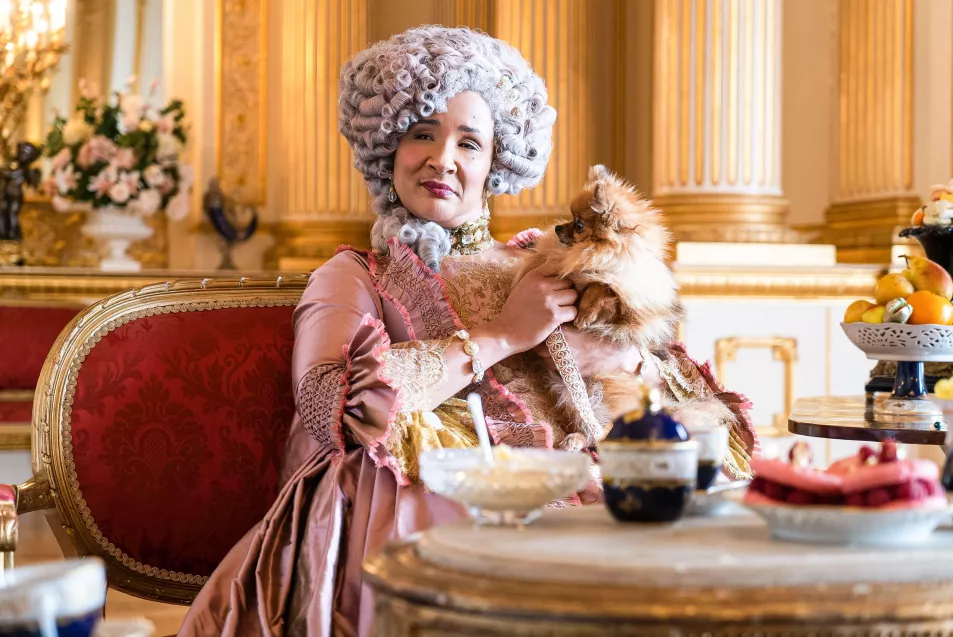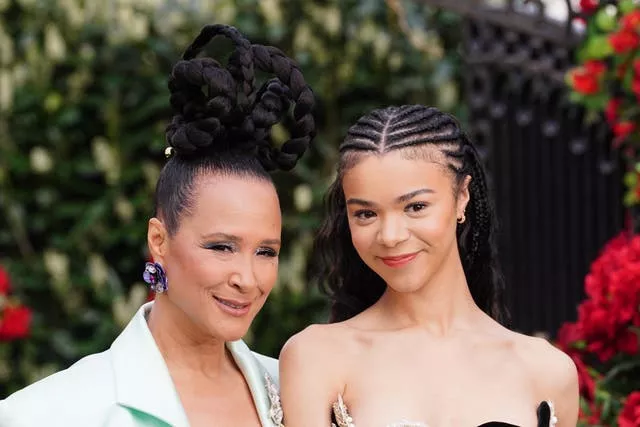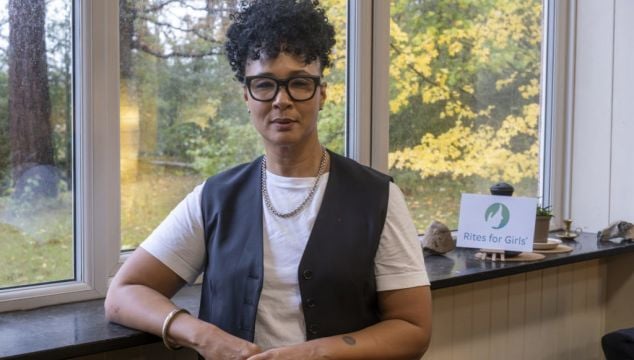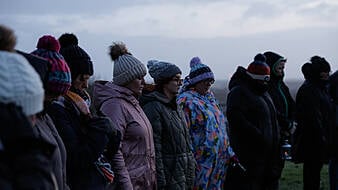Actor Golda Rosheuvel got her first period around the age of 11 and 12 and it was a very matter-of-fact experience. She read a book with her mum who then showed her how to use tampons and sanitary towels. And that was that – it was never to be spoken about again.
“I would have loved to have celebrated that moment,” says the 53-year-old, best known for playing Queen Charlotte in the Netflix and Shondaland series Bridgerton, and its prequel Queen Charlotte: A Bridgerton Story.
“We have so many ceremonies in our lives. Even before we are born, we are celebrated. Our birth is celebrated. And marriage is celebrated. To some extent, there is a ceremony around death in some places. But why don’t we celebrate becoming a woman? Why is that a taboo subject, when it should be a really amazing celebration,” says the British actor, who also played Shadout Mapes in the sci-fi adventure film Dune.

Making that transition from a girl to a woman was hard for Rosheuvel, who was living in Bishop’s Stortford, on the border of Hertfordshire and Essex at the time.
It was all about doing things on your own and having a stiff upper lip, she says. You didn’t talk about your emotions but were expected to strive forward: get a job and earn money, until there was a certain moment in her career when she decided that this way of living had to stop.
“When you go through the transition from childhood to adulthood, it can be a really special and specific time. I didn’t have social media and half the stuff that young people have to deal with now. So in some respects, it was a better time. But I’ve spoken about being biracial and how I had to work out who I was, where I sat between two amazing cultures — [British and Guyanese] — what I wanted and how I was going to say it.
“My body was changing too,” Rosheuvel, who now lives in London, adds. “I needed to find a more spiritual, graceful and kinder way of thinking, so I went into therapy and don’t think I really worked through everything until much later on in my life. But it’s why I would always be an advocate for that kind of help, where you can interrogate the nooks, crannies and niggles of life in general.”
Rosheuvel believes social media and being online is actually a “good” thing for girls. “It’s here to stay,” she says. “That is where the world is heading. But it’s such an enclosed space we need to have more dialogue about.
“There are still societal pressures [young girls] have to navigate, from how you are seen, what you choose to wear and even what make-up you are going to put on. Young girls need to know that they have the choice to step back and turn it off.”
Passionate about empowerment for women of all races, Rosheuvel has been named as the first ambassador for Rites for Girls, a UK-based not-for-profit dedicated to making the passage into and through teenage years kinder, safer and more supported for girls aged eight to 18.

Rites for Girls, founded in 2017 by Kim McCabe, will also be funded by The National Lottery Community Fund for the next three years, in recognition of its formal roster of licensed programmes, including Journeying Together — a year-long in-person programme where preteen girls learn about puberty and how to take charge of their emotional, social and mental wellbeing, and Girls’ Net — a six-week virtual programme.
“I wish I had somewhere like Rites for Girls to be able to talk to other girls to know that I wasn’t alone, to know that there was a community of us having the same struggles, feeling the same thing and that we, together, can know our value and feel confident about who we are,” Rosheuvel says.
“Even now, as an adult, I know all of that and came to it in my own way. But there are still struggles that I can see in the world that really put pressure on young girls.
“You’re sometimes told you could only get so far as a woman. But also, we’re told women can have it all.

“That’s one of the reasons why I’m putting my voice to this organisation because I am so passionate about choice and empowerment – especially for young women – and having spaces where [they can] find community, mentorship and friendship, female friendship.
”I’ve talked to some of the girls and their mothers at Rites for Girls, and listened to the way they speak about becoming a woman and having periods, they are so aware of their bodies and what their body is going through every month.
“There’s this beautiful thing they do, where each girl gets a pencil case, which has tampons, sanitary towels and a bit of chocolate inside, which they can put in their bags, whether they are at school or just going out. They are being taught to be proud and not be shameful about it.”
But what is the power of sisterhood? “I’ve got amazing mates, who really understand me. I could go off to film for a year or whatever, and when I’m back, I tell them that I need to see you and straight away, it’s like, ‘Alright, let’s have some dinner’.

“Community is so important to me, it’s a mirror, a place where you can build resilience, and emotional connections and practice self-care.”
Ultimately, Rosheuvel wants girls to “know that you have choice [and] really lead with your gut instinct, which enables girls to have a strong sense of themselves and move forward in whatever they want to do”.
Golda has become the first Rites for Girls Ambassador and urges anyone who wants to help make a difference, or access a free parenting guide, to visit ritesforgirls.com/free-guide







